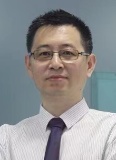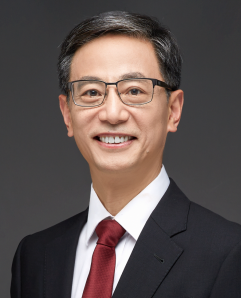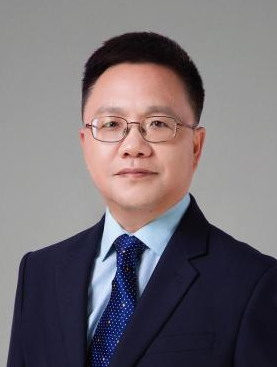

Yanguo Jing
FBCS, MIEEE, MIET, PFHEA, CMBE, Leeds Trinity University, UK
Professor Yanguo Jing is the Dean of Faculty of Business, Computing and Digital Industries, Leeds Trinity University, UK. He is a Professor of Artificial Intelligence, a Principal Fellow of the Advance HE (PFHEA), a Fellow of the British Computer Society, and a Certified Management & Business Educator. He is a council member of the Chartered Association of Business Schools in the UK. He is interested in the use of AI and machine learning algorithms to learn behaviour patterns and develop intelligent applications. His recent work focuses on the use of AI and machine learning algorithms in sports science, HR, business and education.
Title: The use of AI in Job Grading in Higher Education in the UK
Abstract: Job grading is a time consuming and to some extend a subjective task. The HERA (High Education Role Analysis) method is used broadly by most universities in the UK to provide the job grading consistency. This project aims to use machine learning algorithm to learn the grading process and automatically provide the job grade. A preliminary has been carried out, among four different type of job elements in the job descript, this research has produced an accuracy between 80% to 92%. Future recommendations of this work will be provide, as well as the ethical considerations of using AI in human resource domain.

Hong Zhang
Fellow of Canadian Academy of Engineering, Fellow of IEEE, Southern University of Science and Technology, China
Zhang Hong, a member of the Canadian Academy of Engineering, IEEE Fellow, a leading talent in Guangdong Province's "Pearl River Talent Program", is currently a professor in the Department of Electronic and Electrical Engineering, Southern University of Science and Technology. He was a tenured professor in the Department of Computer Science at the University of Alberta, Canada, for many years. While working in Canada, he completed a number of major research and development projects and served as the Chief Industrial Research Professor of the Natural Sciences and Engineering Foundation of Canada (NSERC IRC). His current research interests include mobile robot navigation, autonomous driving, computer vision, and image processing. He has trained more than 80 masters, doctors and postdocs, many of whom are teaching at famous universities at home and abroad, including the University of Toronto in Canada. He has served as editorial board member and conference Chair of several international journals, and is currently the chief editor of the Editorial Board of IROS, the flagship conference of the IEEE Robotics and Automation Society (2020-2023).
Title: Applications of Foundation Models in Robotics
Abstract: Development in artificial intelligence (AI) has always opened doors to its robotics applications. Most recently, the emergence of foundation models such as large language models, visual language models, image segmentation models, etc. has led to solutions to existing challenges in robot navigation and manipulation. Foundation models in these cases serve as a rich source of prior information for robot sensory perception and decision making that is difficult or impossible to obtain otherwise. This presentation first quickly sumarizes representative state-of-the-art foundation models. It is then followed by a description of some research projects in the Shenzhen Key Laboratory on Robotics and Computer Vision at SUSTech on (a) robot grasping (b) mobile robot task planning, and (c) embodied AI.

Zhihai He
Fellow of IEEE, Southern University of Science and Technology, China
Professor He has worked in the Department of Electronic Engineering at the University of Missouri for 18 years. Before leaving, he was the tenured full professor of the department and the Robert Lee Tatum Distinguished Chair Professor. During his work in the United States, he undertook more than ten key research projects of the National Science Foundation (NSF), Department of Defense (DoD), and National Institutes of Health (NIH). The current research directionis deep learning, machine vision & artificial intelligence Internet of Things (AIoT). He was selected into the Stanford University's World's Top 2% Scientists Lifelong Science Impact Ranking and the 2019 Science Impact Ranking.
Title: Data-Driven Modeling with Reciprocal Learning
Abstract: One central problem in learning is how to characterize the prediction error. In this talk, we introduce our recent work on reciprocal learning. While the baseline network is learning the forward model from the training data, a dual network is designed to learn the inverse model based on the transposed training data. We found that the loop prediction error by the baseline network and the dual networks is highly correlated with the prediction error. Based on this interesting finding, we develop a set of new adaptive learning methods which advances the state-of-the-arts in different applications, including trajectory / attention prediction, pose estimation, few-shot learning, and physical system modeling.